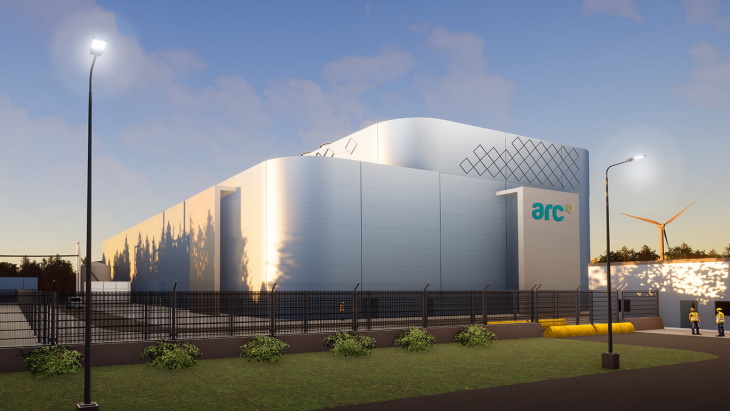The governments of Saskatchewan and New Brunswick have signed a Memorandum of Understanding (MoU) to enhance cooperation on the development of small modular reactor (SMR) technologies in both Canadian provinces.

ARC's vision of an ACR-100 plant, which has been selected for deployment at Point Lepreau, New Brunswick (Image: ARC)
This new agreement builds on a previous MoU signed in December 2019 that committed to New Brunswick, Ontario and Saskatchewan working together to advance SMRs in Canada. Alberta joined in April 2021. Through this work, participating provinces released a joint strategic plan in March 2022 outlining the path forward on the development of SMRs.
The new MoU provides the ability for the two provinces and their utility Crowns - SaskPower and New Brunswick Power - to formally share experiences, knowledge and successes on deployment plans, supply chain development, Indigenous relations, labour market development, regulations and other areas.
"Saskatchewan and New Brunswick have established a strong working relationship on SMR development over the years," said Don Morgan, minister of Crown Investments Corporation of Saskatchewan. "This renewed partnership will bring mutual benefit to both provinces by capturing opportunities stemming from the work on nuclear energy development across Canada and internationally. Together, we can accelerate the progress of decarbonising power grids and industrial facilities using SMR technologies."
In June 2022, SaskPower announced the selection of the GE-Hitachi BWRX-300 as the preferred SMR technology for initial grid-scale deployment in Saskatchewan - the same model Ontario Power Generation selected in December 2021 for its Darlington New Nuclear Project.
"New Brunswick has expertise to share from four decades of reliable nuclear operations," said Natural Resources and Energy Development Minister Mike Holland. "We are committed to playing a leadership role nationally and globally on clean and renewable energy. Nuclear energy is a key resource in the transition to a low-carbon future and our two provinces are well positioned to lead this evolution."
SMR technologies are also recognised in New Brunswick's Climate Change Action Plan as an important part of achieving net-zero electricity emissions by 2035.
ARC Clean Technology Canada Inc's ARC-100 is a 100 MWe sodium-cooled fast reactor based on proven technology developed at the Experimental Breeder Reactor-II reactor, which operated successfully at the US government's Argonne National Laboratory for 30 years. It has been selected for deployment in New Brunswick, with a fully operational unit at the Point Lepreau nuclear site by 2029. The Belledune Port Authority is also considering using an ARC-100 for the provision of energy for hydrogen production and other industries as part of a future expansion at the port in northern New Brunswick.